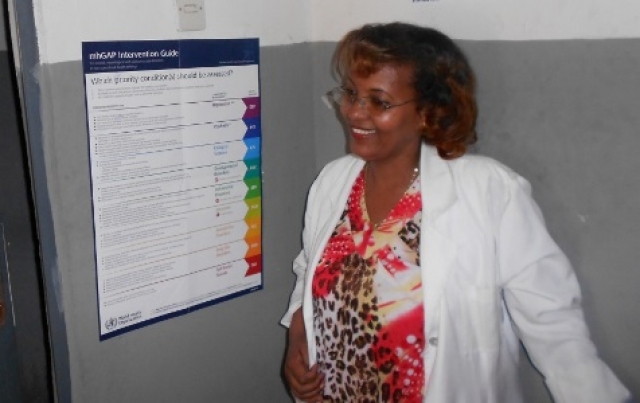Mainstreaming mental health in Ethiopia
 Hanna comes from Mekelle, in theTigray region of Ethiopia. At one point in her life she suffered a traumatic experience that led to depression: “I have always been happy and healthy in my life. Until something terrible happened to me: my only child died. After that dramatic episode, my life hasn’t been the same. I kept thinking about him, and couldn’t sleep at night. I felt so sad and would be so nervous and my heart would beat very fast. This made me so worried I thought something bad was going to happen to me as well.”
Hanna comes from Mekelle, in theTigray region of Ethiopia. At one point in her life she suffered a traumatic experience that led to depression: “I have always been happy and healthy in my life. Until something terrible happened to me: my only child died. After that dramatic episode, my life hasn’t been the same. I kept thinking about him, and couldn’t sleep at night. I felt so sad and would be so nervous and my heart would beat very fast. This made me so worried I thought something bad was going to happen to me as well.”
The case of Hanna is not unusual and many other Ethiopians have similar stories. In Ethiopia, it is estimated that 15% of people are affected by major mental illness or substance abuse disorders.
Past challenges have been the lack of mental health specialists outside the capital, Addis Ababa, and the poor quality of services provided for mental, neurological and substance use disorders. In addition, people suffering from mental illness are often the most marginalized, and affected by stigma and discrimination.


